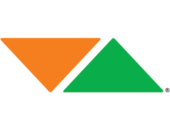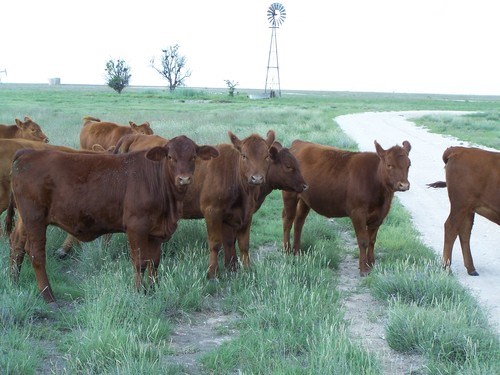Summer is almost here. I know it seems strange to talk about supplementation during the summer, but really, summer forage conditions can be used to clarify supplementing livestock better than winter. I mean, you expect to have to supplement animals on pasture in the winter, don’t you?
There are times when supplementing in the summer is warranted and profitable, too. But we’ll talk about that later. First, how many of you decide when and what to supplement based on history?
Most livestock producers will feed the same thing each year, at the same time, because that is what has worked in the past. How do you know it’s working? Without a control group (a group of like animals on similar pasture that don’t get a supplement), how do you know if feeding a supplement to livestock on pasture will net you any more returns after costs than not supplementing?
Most of you know that I am a major proponent of forage sampling to get an idea of the nutritional intake of your livestock from time to time. Without this base knowledge, you really have only a vague guess as to the nutritional status of your animals. Of course you have the performance data from years past, hopefully. But since forage quality is an ever-changing value, it’s very difficult to compare one year’s performance to the next.
So supplementing really needs to have a foundation in the principle of what the animals’ actual nutritional intake is. From this point you can make some economical decisions as to whether supplementing is needed, and what nutrients need to be fed.
For livestock on pasture, forage must be the key component in profitable operations. It is the cheapest feed you can put in your animals, and everything you do must start with making sure they have ample supplies of it. Then you need to help make it the best quality that the environment will allow. If your forages will respond to fertilizer, and you have the rainfall to realize this response, then increasing the forage nutritional quality through fertilizing may be cheaper than supplementing.
However, with most of our native-type forages, fertilizer responses are poor in most cases. Then we have to look at supplementation. And, if we consider mineral supplementation in the whole scheme, there is a need to supplement some kind of nutrients throughout the year.
The real question is what to supplement, and when. Again the forage data will give you a starting place. From there you can determine what nutrients your livestock are deficient in. Then you feed that to them, right?
Not necessarily. In my opinion, you must keep economics in the forefront of your decision making, unless harsh environmental conditions (like the drought we just experienced) dictate that you must go beyond economics to maintain their health and productivity. However, there is a good argument that when conditions get to the point that costs will be excessive to keep livestock through these difficult times, maybe it’s time to sell them until the conditions improve.
But that’s getting away from my current point. In normal conditions, you need to compare the cost of feeding the necessary supplement to the return you can expect from it. Let’s say you detect a slight protein deficiency in the forage data. We know that a protein deficiency in the rumen will lead to restricted forage intake, which will result in a reduction in total nutritional intake. In this case, feeding a small amount of protein to these animals can result in a substantial improvement in performance, which should be profitable. We see this situation in the mid-summer forage slump most years.
However, if you feed 2.0 pounds per day of a high energy supplement because you thought the animals needed more energy (when they had only a protein deficiency), you will get much less of a response to a lot more cost, and most likely, the improvement in performance will cost more than it’s worth. That’s what we’re trying to stay away from. Spending money that won’t make money.
Now, I’m not saying that there aren’t times to feed energy. If you need to push gains on livestock higher than just forage will produce, then feeding energy is the only way to do it. Such is the case of getting young livestock to a target breeding weight to improve conception rates, or if you sell breeding stock, they must be large for their age, or other producers will buy from someone else. But that doesn’t mean that feeding energy can’t be economical. In these cases, the value of these breeding animals is much greater, hopefully, than the average animal in the pasture. The economics still apply. It’s just that you’re dealing with a higher value.
You still need to chose your supplement based on what the livestock are lacking. If you determine they have ample protein for the performance you desire, then there is nothing wrong with feeding the lowest protein supplement that fills the energy need. It will cost less money than using one with a higher protein content. And that’s one of the main goals, getting the most production for the least cost.
Another consideration is whether or not the improvement in performance from the supplement is worth the cost. Let’s say you have some mature females that are in late lactation, meaning they are in a declining rate of milk production. Your forage analysis reveals that the protein intake is marginal; allowing them a slight gain. Supplementing with protein can probably increase that gain. But let’s also reveal that these females are in very good body condition, and gaining more weight really won’t make that much difference in the current milk production, or their future reproduction.
For this situation, I suggest that supplementation would be a waste of money. Maybe if they were a little thin and needed to gain a good bit of weight before fall, then feeding a little protein now could save you greater feed costs later in the year by helping them to have some extra body condiditon they can metabolize in the winter.
You see, supplementing is not always a black and white issue. There are many shades of gray involved. And by all means, if you just have to supplement, go ahead. Just be aware that it may help, or hurt, the profitability of your operation. It all depends on knowing what your livestock are deficient in, and what supplement will correct the problem for the least costs.
Every year is different, each summer and each feed is different. Don’t get stuck on using the same feed year after year, just because it has worked in the past. Make your supplemental feeding decisions from a position of knowledge and not guess. Analyze your options for the best economical returns. And always keep in mind to maximize forage intake. Full use of forage and startegically economical supplements are the real keys to a profitable livestock operation.
Interested in our mineral products? Click here.

